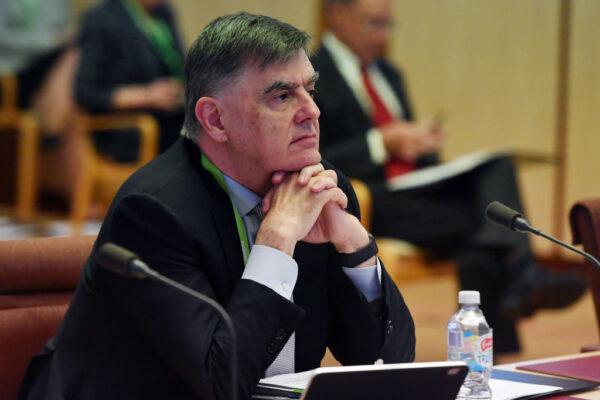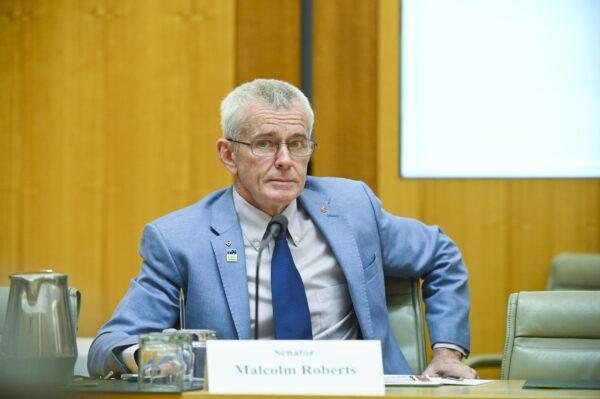The secretary of the Australian federal Department of Health, Professor Brendan Murphy, has called the continuation of vaccine mandates in Australia unjustified.
Despite the removal of top-level vaccine mandates by state governments, the public health orders still remain across government departments and parts of the private sector.
“We have a highly vaccinated population. If people are foolish enough to choose not to be vaccinated, then I’m not sure that mandates are going to achieve much,” Prof. Murphy told a Senate Estimates hearing on June 1.
“I think in some healthcare setting early on, particularly when the risk of transmission was high, and the vaccines did in the early phases prevent transmission. I think they were proportionate,” he said.
“Unfortunately, personally, and I’m not speaking for the government, I am speaking as a clinician, that I think that the proportionality of the vaccine mandates is no longer justified.”

His comments come after questions from Queensland Senator Matt Canavan about the continuation of vaccine mandates by medical companies, which is keeping specialists like radiologists from providing services in regional areas.
At present Australia’s total population is just over 26.5 million, which means the vaccination coverage sits at 96.25 percent.
As of April 21, 20,154 people have reportedly died from COVID-19.
Even if an individual has received a jab less than six months earlier.
Senator Welcomes Comments But Calls for Actions
In response, One Nation Senator Malcolm Roberts said Murphy’s comments were a “backflip.”“One Nation has always maintained that vaccination should be a personal medical choice and never mandated by the government or an employer,” he added.

“This is too little too late for the thousands of people who have suffered life-changing injuries as a result of mandates or lost their livelihoods because of their choice to remain unvaccinated.”
Roberts called on the federal government to act immediately to end all vaccine mandates that were still in effect at “government workplaces and immediately act to pass One Nation’s vaccine discrimination bill so no further harm is done in the private sector.”
Vaccine Injury Concerns Growing
Calls for vaccine mandates around Australia to be completely removed continue to grow after an earlier decision by the Fair Work Ombudsmen to give businesses authority to make their own COVID-19 workplace policies.“In some cases, employers may be able to require their employees to be vaccinated against COVID-19, including by providing a lawful and reasonable direction or where a specific law (such as a public health order) requires it,” the Ombudsmen said.
But they did suggest employers get “legal advice if they’re considering requiring COVID-19 vaccinations in their workplace.”
Yet the legal firm Sydney Criminal Lawyers, in a blog post in March, said “hundreds” still remained out of work.
“Fast forward to 2023—the significant threat once posed by COVID and its variants is subsiding, and we have a new premier who has ‘strongly encouraged’ both the public and private sector to scrap vaccine mandates because, as has long been recognised, ’there is no evidence that the vaccines stop transmission.’
“Despite wanting people to still partake in the vaccine program, the government does need to facilitate more open discussion about vaccine injuries, which currently seem to be shrouded in a veil of secrecy and silence—it’s important to share this information in order for Australians to remain adequately informed of the risks,” they said.





Friends Read Free